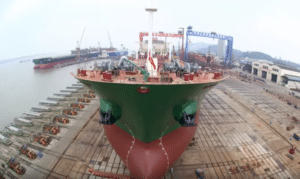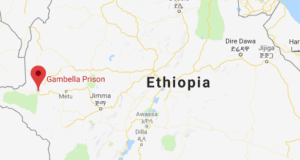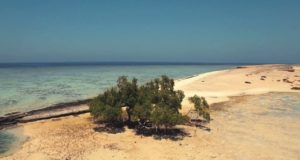ESAT News (July 31, 2017)
Two old ships sold by the Ethiopian Shipping and Logistic Services Enterprise (formerly the Ethiopian Shipping Lines) two years ago to Metals and Engineering Corporation (METEC) are costing the country millions of dollars to cover costs to keep them at the harbor at the port of Djibouti. The Enterprise is also at risk of being blacklisted due to violations of international maritime laws.
The ships, namely “Abiyot” and “Abay Wonz,” sold to METEC, a company owned by the TPLF ruling elites, were to be dismantled by the corporation and be used as raw materials.
The letter written by former Ethiopian Ambassador to Djibouti, Suleiman Dedefo to the Ministry of Foreign Affairs in February 2016 and obtained by ESAT indicate that METEC did not dismantle and remove the ships from the port costing 2,000 dollars a day in port fees and millions of dollars in generator fuel, services and employee salaries. These costs are as at February 2016, when the letter was written by Amb. Dedefo to the then Minister of Foreign Affairs, Tedros Adhanom and copied to relevant departments.
Breaking down the costs incurred in the first six months, the Ambassador indicated in the letter that Ethiopia was spending over $2000 in daily port fees and over $1,000,000 in fuels to keep the generators running, in employees salary and other service costs.
The Ambassador in the letter expressed his concern that his poor country has spent $1,391,000 in just six months to the two ships that were out of service and sold to METEC to be disassembled and be used as raw materials to the Metals Corporation.
The letter also says METEC has intended to service the ships and start a maritime business against the agreement reached with the Enterprise which is to dismantle the ships and use the parts as raw materials for its metal workshops.
The Ambassador wonders why METEC wanted to engage in maritime business while there is an experienced national carrier in the business already. He said the move by METEC is dangerous as it intends to establish a maritime business with two old ships to transport armaments that require utmost care and service. He also accused that METEC has been using substandard shipping lines to transport military equipment that needs exceptional transportation service.
The letter showed that the generator in one of the ships was down as it run out of fuel. As a result, crew on the ship run out of safe drinking water and were forced to drink water from the sea. Some of the crew came down with diarrhea and the Enterprise had to move the ship to a berth to provide water and medical care to the crew. The Ambassador said in the letter that a Ghanaian captain of one of the vessels, Samuel Amuako, had reported to Djiboutian police objecting his detention on the ship and the way he was treated by the Enterprise against international maritime laws.
According Ambassador Dedefo’s letter, an Ethiopian crew member had one of his legs amputated after injuries he sustained on the ship. He said the injuries led to the amputation of his leg because the employee was not given immediate care. He said one of the ships was without a captain which is a violation of maritime laws.
Dedefo expressed his concern that the Ethiopian Shipping and Logistic Services Enterprise could be blacklisted due to the reported negligences and violations of international maritime laws.
 The Ethiopian Satellite Television and Radio (ESAT) No. 1 Ethiopian news media: Esat, Ethiopian news, daily Ethiopian news, ESAT tv, ESAT Radio, Ethiopia
The Ethiopian Satellite Television and Radio (ESAT) No. 1 Ethiopian news media: Esat, Ethiopian news, daily Ethiopian news, ESAT tv, ESAT Radio, Ethiopia





